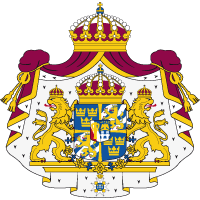The Palace Park
Here, King Gustav Vasa raised horses for the Swedish Army. Today, there is a riding college and annual equestrian competitions are held in the pleasure gardens.
Strömsholm Palace and the thickly wooded park are surrounded by spacious mea-dows, pastures, oak woods and hazel groves.
Great stately oaks and the old-world pastoral landscape towards Lake Mälaren give the area a unique character. Here, both the plant and animal life are extremely rich.
The park is open year round.
The middle age
The area around Strömsholm has been inhabited since the middle ages.
Gustav Vasa reinforced the importance of horses here, by raising horses for Sweden´s army.
The palace, gardens and parks have been formed and fashioned by royalty since the middle of the 1500s.
Queens through the ages
Above all a number queens through the ages, who received the property as a wedding gift or dowager´s residence, have meant a lot for the development of the area, in collaboration with their architects, gardeners and other employees.
Strömsholm today
Different ideals and styles were witnessed throughout the palace´s long garden and park history. Today locals, tourists and equestrians from the Strömsholm Riding School visit and enjoy the park.
During the summer months many concerts and weddings are held here. As well as a few key horse riding competitions.
Many of the trees lining the avenues are old and decrepit and a number have disappeared since the 1970s. Even many of the bushes and hedges are gone.
A culture landscape
But the park, the avenues and the different gardens, as well as the remains of the kitchen garden, together with the surrounding culture landscape, make up a valuable cultural heritage.
The area protected both as a nature reserve and a state historical building heritage and is been preserved and brought to life for future generations.
At the present time preservation work is ongoing, as is an information program, future planning, tree renewal and restoration.
Photo: Royalpalaces.se
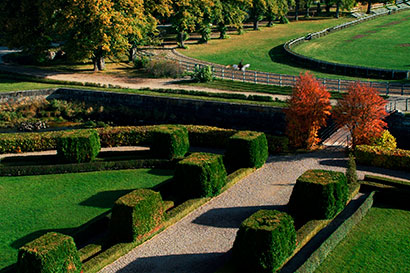
Strömsholm Riding School holds annual competitions in the pleasure gardens. Photo: Dick Norberg/Royalpalaces.se
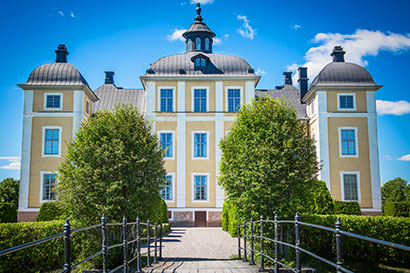
The palace has a chapel, which many couples choose as a romantic wedding venue. Photo: Raphael Stecksén/Royalpalaces.se
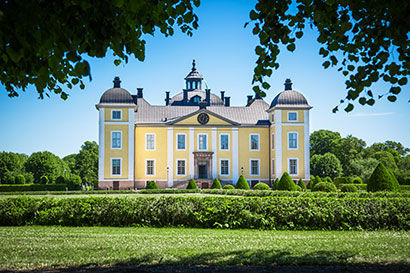
The Strömsholm area has been inhabited since the Middle Ages. Photo: Raphael Stecksén/Royalpalaces.se
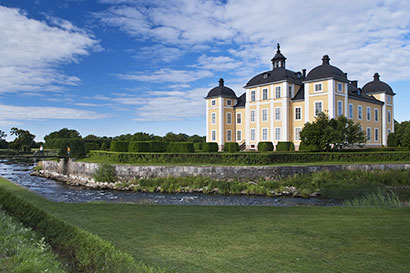
The yellow Baroque Strömsholm Palace is built on a fortified islet where the Kolbäck River flows into Mälar Bay. Photo: Gomer Swahn/Royalpalaces.se
